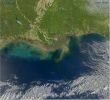Reading one of these following facts about Versailles must give you much information of what place you should visit first. Palace of Versailles is the right one. Anyway, do you know what Palace of Versailles is? Versailles is a royal chateau in Versailles in the Ile-de-France region of France. When the chateau was built, Versailles was was a country village; today, however, it is a wealthy suburb of Paris. The court of Versailles was the center of political power in France from 1682, when Louis XIV moved from Paris, until the royal family was forced to return to the capital in October 1789 after the beginning of the French Revolution. It is therefore famous not only as a building, but as a symbol of the system of absolute monarchy of the Ancien Regime. To get to know more about this place, here are some other facts about Versailles you may like.
Facts about Versailles 1: Birthplace of Louis XV
Louis XV of France was born in the Palace of Versailles. However, after the death of the Louis XIV in 1715, he returned to Paris, along with the court, and the Régence government of Philippe II d’Orléans. He returned to Versailles in 1722.
Facts about Versailles 2: Chateau de Versailles
When Chateau de Versailles was completed, it could accommodate up to 5,000 people, including servants. However, right now, Versailles was only a country village. It has now developed into a suburb of Paris.
Facts about Versailles 3: Hall of Mirrors
The most famous feature of the Palace of Versailles is the Hall of Mirrors. Spanning across a length of 240 feet the hall was once used to be lit with 3,000 candles. On the either side of the hallway are two salons namely the ‘de la guerre’ and the Hall of Mirrors called ‘de la paix’.
Facts about Versailles 4: French Revolution
At the outbreak of the French Revolution, the exquisite collection of paintings, and some of the masterpieces of art kept at Versailles were moved to the Louvre Museum. Some of the other art and craft items were sent to National Library and Conservatory of Arts and Crafts.
Facts about Versailles 5: Marie Antoinette
Versailles has been made famous in popular media largely due to Marie Antoinette who married Louis XVI. Her extravagant lifestyle and Austrian decent made her unpopular with the Parisian citizens due to the prevalence of poverty, France’s growing debt and tensions with Austria. In 1789 a mob stormed the gates of Versailles, Marie Antoinette and Louis XVI were captured, imprisoned, and later sentenced to death by the guillotine.
Facts about Versailles 6: Sold Artworks
Duringthe French Revolution, much of the furniture was sold and artworks moved to museums. It was not until after World War II a concerted effort was put into the restoration of Versailles, which included sourcing as much of the original furniture and artwork as possible.
Facts about Versailles 7: Versailles’ Garden
Facts about Versailles 8: Current Use
The Fifth Republic has enthusiastically promoted the museum as one of France’s foremost tourist attractions.The palace, however, still serves political functions. Heads of state are regaled in the Hall of Mirrors; the Senat and the Assemblee nationale meet in congress in Versailles to revise or otherwise amend the French Constitution, a tradition that came into effect with the promulgation of the 1875 Constitution.
Facts about Versailles 9: War Uses
After the French defeat in the Franco-Prussian War, with the Siege of Paris dragging on, the palace was the main headquarters of the Prussian army from 5 October 1870 until 13 March 1871. On 18 January 1871, Prussian King Wilhelm I was proclaimed German Emperor in the Hall of Mirrors, and the German Empire was founded.
Facts about Versailles 10: Politics of Display
Versailles became the home of the French nobility and the location of the royal court, thus becoming the centre of French government. Louis XIV himself lived there, and symbolically the central room of the long extensive symmetrical range of buildings was the King’s Bedchamber, which itself was centred on the lavish and symbolic state bed, set behind a rich railing not unlike a communion rail.
Hope you would find those Versailles facts really interesting and useful for your reading.










 www.PortlandPayday.Loans
www.PortlandPayday.Loans